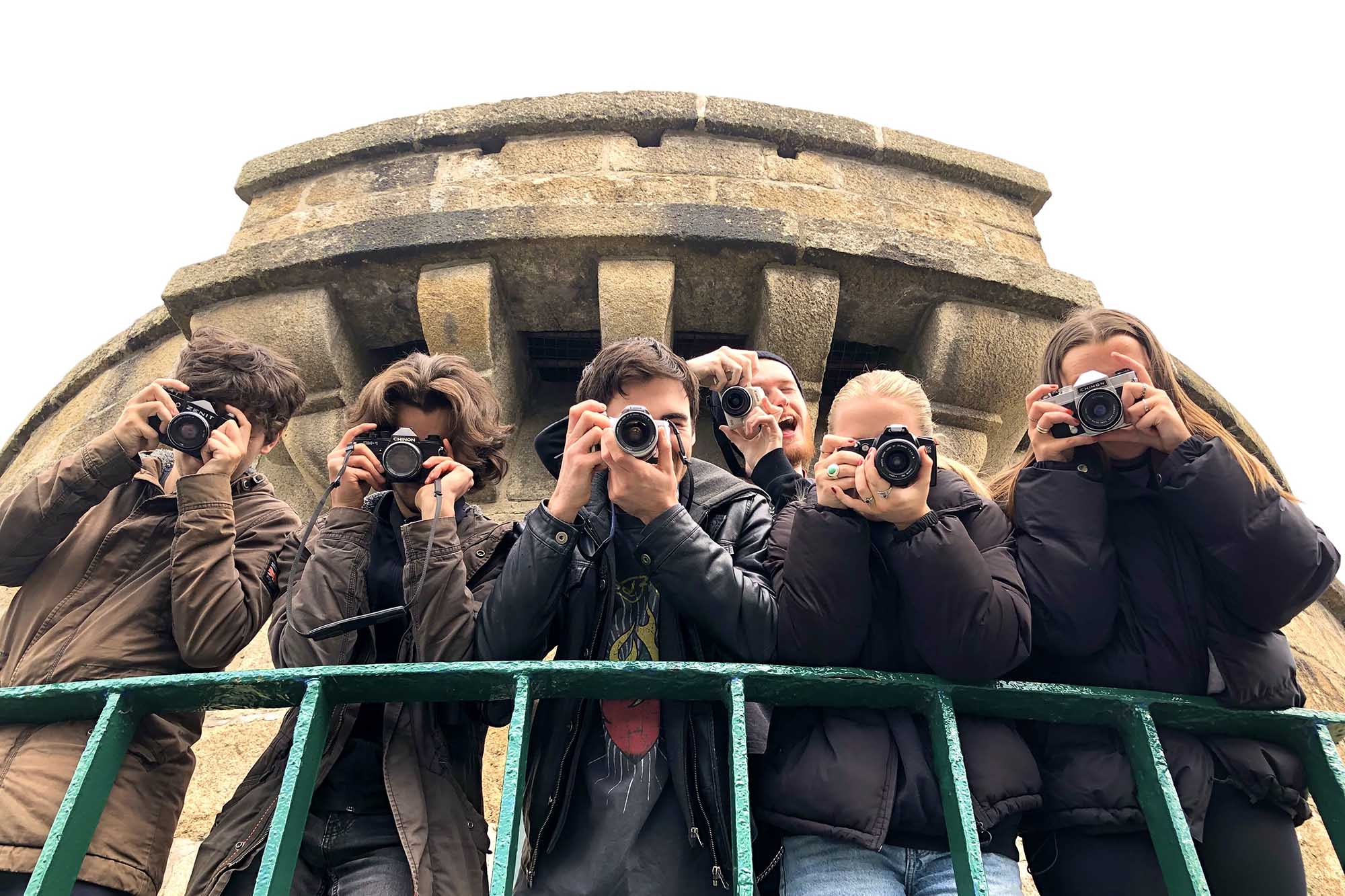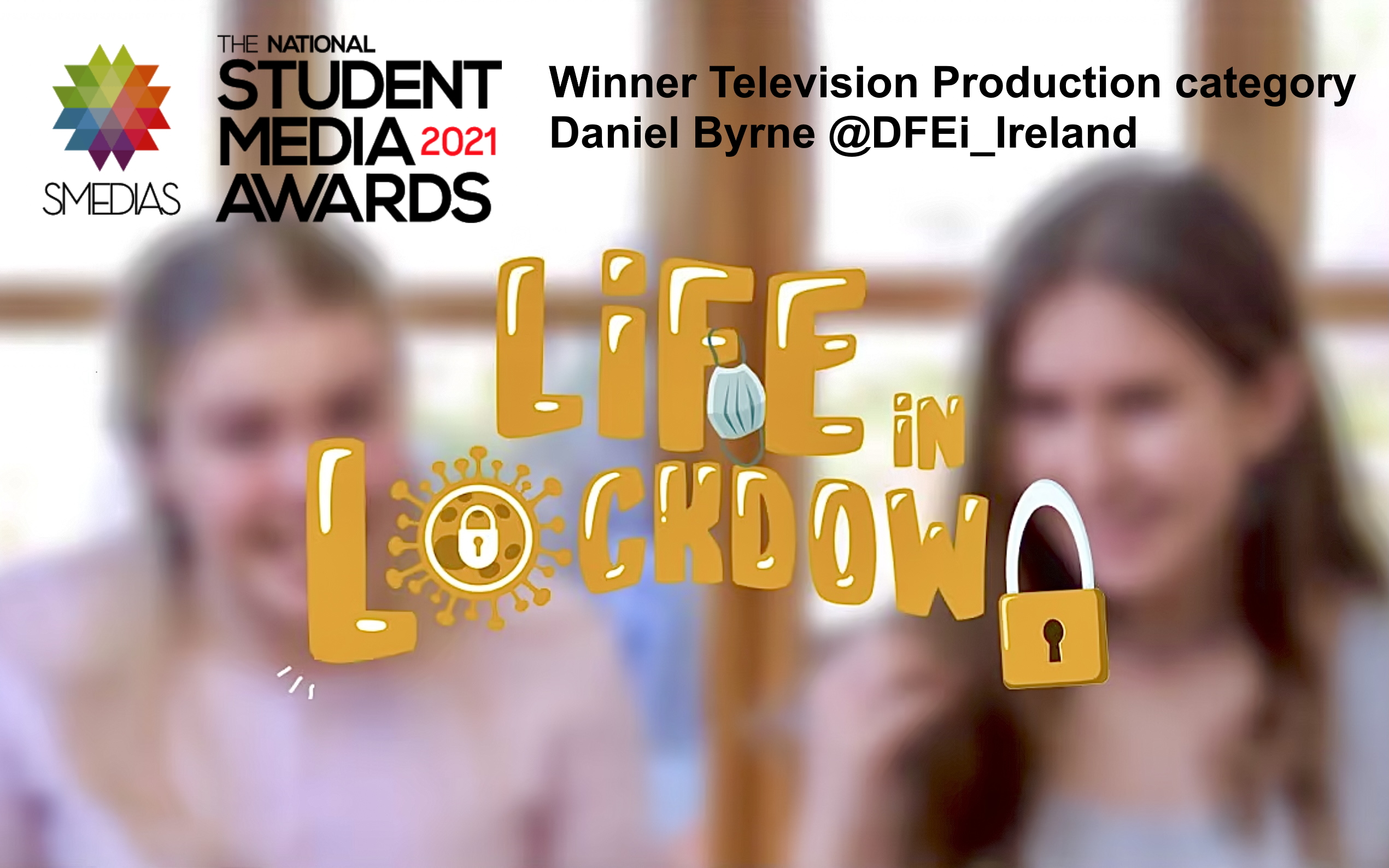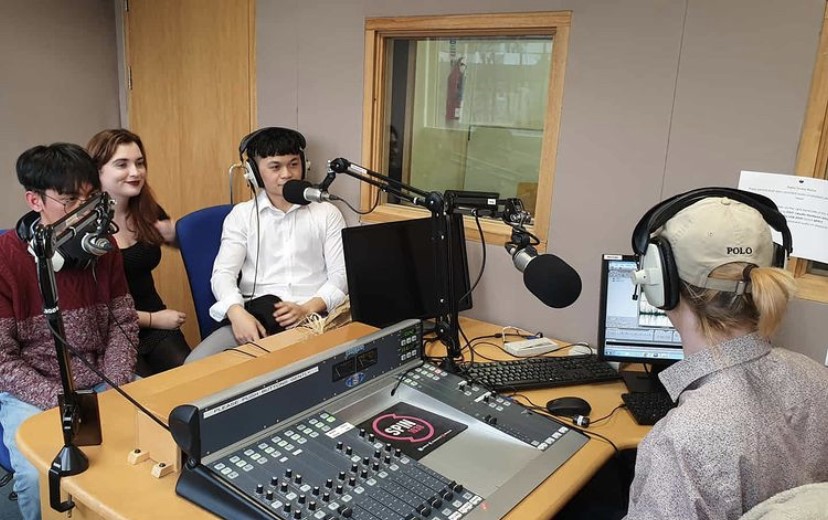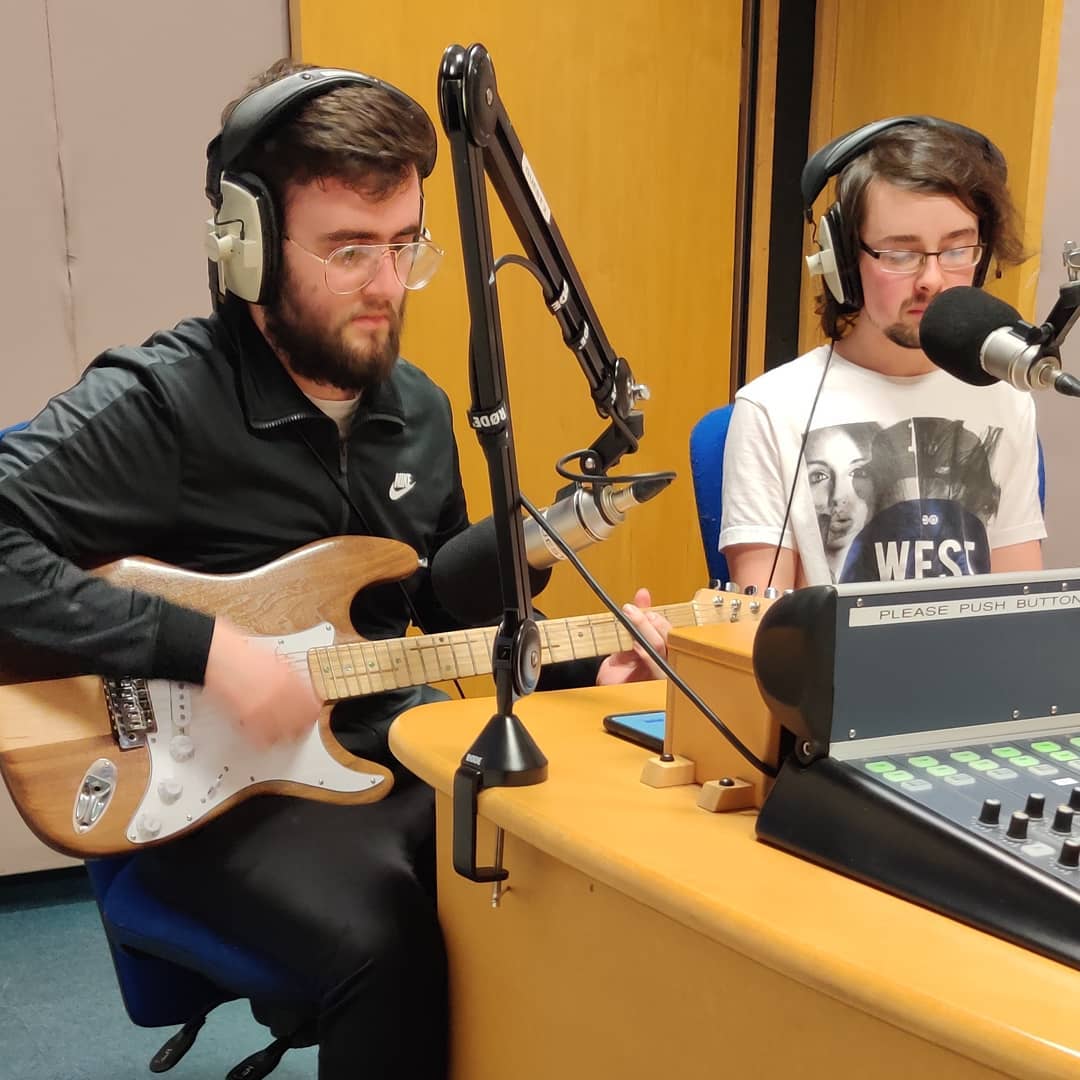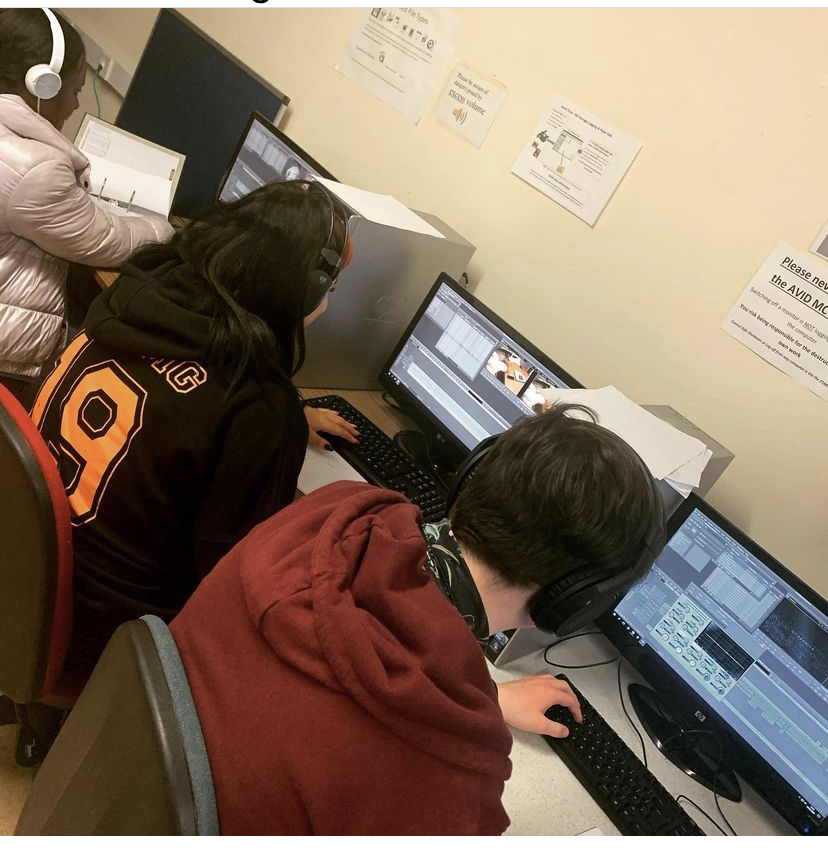Creative Digital Media Production - Film, Photography and Radio
Level 5 QQI Award Media Production 5M18518
Duration
This is a Full-time One Year course which runs from Sept. to May. Exact details of the timetable will be given out to students during the induction process prior to class commencement in September.
Overview
This media production focusing on Film, Photography and Radio course is an excellent foundation course for media degrees in: IADT (National Film School), DCU, TU Dublin and other Higher Education Institutes and Universities. Students will be exposed to the radio, film and photography processes and procedures; used by digital media studios today in program making. Students will gain practical knowledge of how different media products are produced, as well as an understanding of how the relationships between producer, financing, and the audience impact on one another.
Students will produce a portfolio of work for assessment which may be used for progression applications to degree programmes elsewhere.
Entry Requirements
One of the following:
- Leaving Certificate (LC Established, LCVP, LCA) or equivalent
- A Full Level 4 QQI Award (or equivalent)
- For Mature applicants (aged 21 or over) - appropriate experience will be considered in lieu of formal qualifications. Note: Mature applicants may be entitled to VTOS funding. For details about VTOS, please contact the college.
- Applicants whose first language is not English require level B1 competency on the CEFR language framework. Applicants may be required to undergo English language testing to establish their language competency.
Course Modules
- Film Production
- Traditional Black and White Photography
- Radio Programme Production
- Scriptwriting
- Image Processing
- Media Analysis
- Communications
- Work Experience
Module Information
Creative Digital Media Production
Level 5 QQI Award: Media Production (5M18518)
Course Content (Module Names and Codes)
Film Production (5N0637)
Explore the process of developing and producing a film production from concept to final film clip. Learn how to script, prepare, plan, use professional digital cameras and edit your footage using industry standard software (Avid Media Composer). This component will provide the learner with a portfolio piece that they have written, directed, operated camera and edited.
Assessment: Project (40%), Assignment (60%).
Radio Programme Production (5N1379)
Radio Programme Production: Working individually and in teams, you will produce a range of items for radio and podcasting formats including jingles, scripted voice recordings, studio interviews and group discussions. Instruction in audio production methods, from script consultations to studio operational skills, is delivered both one-to-one and in small groups. All assignment items are recorded in fully digital industry-standard audio recording studios.
Note: for the duration of the course, students will have free licenced access to Adobe Audition recording and editing software to use in the college or at home.
Assessment: Assignment (30%); Portfolio / Collection of Work (50%); Theory Exam (20%).
Scriptwriting (5N18476)
Every film project needs a script. Luckily Scriptwriting is a craft that can be learned. This module will help you to discover your inner writing voice through writing practice and lively workshops. You will learn how to structure a script, develop character and dialogue. By the end of the course, you will have written your own 3-minute short film script.
Assessment: Portfolio/Collection of Work (100%).
Traditional Black and White Photography (5N0757)
Learn and explore the art of still photography using a film based medium. Projects will be shot in the studio and external locations. A portfolio of images will be developed printed and presented on completion of the course. The use of a 35mm SLR film camera will be required to complete this course.
Assessment: Project (50%), Portfolio/ Collection of Work (25%), Learner Record (25%).
Image Processing (5N1292)
Using industry standard software Adobe Photoshop, learn the skills of Digital Image Production and manipulation. Create and Repair images suitable for professional/commercial publication. Learners will explore the legal and ethical considerations involved in image making as well as producing a portfolio of work that demonstrates their learned skills.
Assessment: Project (20%) Portfolio/Collection of Work (60%) Learner Record (20%)
Media Analysis (5N1298)
If you have ever wondered why some stories dominate the headlines and other go under the radar, Media Analysis will help you to understand what makes a story newsworthy. This component considers who owns and controls the media, who frames the message, and asks the question; how savvy is the audience? Are the audience easily manipulated, or can they identify media bias? You will also learn about current media legislation, and reflect on the legal, ethical, and moral responsibilities of media practitioners. This module aims to make us better and more effective producers of media content.
Assessment: Project (60%), Examination - Theory (40%).
Communications (5N0690)
Gain the relevant knowledge, skill and competence to communicate verbally and non-verbally in standard everyday tasks and work-related situations, operating independently and under general supervision.
Assessment: Portfolio/Collection of Work (50%), Skills Demonstration (50%).
Work Experience (5N1356)
You will prepare for work placement in a relevant vocational area through an evaluation of your skills set, the development of a CV, and an understanding of current workplace legislation. An integral part of this component is developing the skills required for a successful job search; therefore, is it your responsibility to secure your own placement. On completion of your Work Placement of at least 10 days (or 60 hours), you will reflect, review, and consider your future career options.
Assessment: Portfolio/Collection of Work (60%), Skills Demonstration (40%).
Certification
- Level 5 QQI Award Media Production (5M18518)
Special Features
This is a very practical course enabling the student to develop a personal portfolio of work; structured and produced to radio, television and video industry standards. Students will use professional digital cameras, Avid Media Composer (editing software), Adobe Audition, Adobe In- Design as well as darkroom practice and techniques.
This course is supported by FIT, which offers students the opportunity to acquire essential skills to gain employment. Students are given training in job interview techniques and CV preparation.
Free full suite of Adobe Creative Cloud Software for all students on this course for one year to facilitate portfolio and assessment work.
All DFEi students are provided with an M365 account, which gives them access to the tools and resources needed to deliver assessment work while attending their course. M365 Apps include Word, PowerPoint, Excel, outlook and OneDrive.
Work Experience
Students will be required to undertake a period work placement in an organisation connected to their vocational area during the academic year. Work Experience is mandatory for all of our full-time Level 5 courses. Students are required to source their own work placement but will be assisted in this by the work experience teacher. The work placement is usually for a period of 10 days or a minimum of 60 hours. Students usually find the work experience element of the course to be invaluable and should bear in mind that a successful work placement can sometimes lead to further opportunities.
Additional Information
Learners will produce a portfolio of materials from their course work in Film, Scriptwriting, Photography, Radio and Desktop Publishing which may be used for application to the IADT and other Higher Education Institutes.
Assessment
Assessment techniques will be used to assess the knowledge and skills that students will have achieved on successful completion of modules:
- Student Record
- Collection of Work
- Assignments
- Examination (Written)
- Project
- Skills Demonstration
All assignments are submitted electronically. Therefore all students need access to a device such as a computer/laptop.
A full major award is granted on passing the relevant eight components. On successful completion of each component, you will be awarded a pass, a merit or a distinction grade. See www.qqi.ie for more details
Visit our youtube podcast channel here
Progression Opportunities
DFEi: Graduates may progress to the Level 6 QQI Advanced Certificate in Television and Digital Film or the Sound Engineering/Sound Production Level 6 at DFEi.
Elsewhere: Graduates are eligible to apply through the CAO and/or the Higher Education Links Scheme for entry to year one of a range of higher certificate and degree programmes, at Universities, Institutes of Technology and Technological Universities using their full QQI Level 5 major award. Places are not guaranteed in these Institutes and are subject to students meeting certain criteria. It is the students' responsibility to consult with the relevant HEI for information on the admissions process and any specific entry requirements. Students may also refer to the individual HEI prospectus or may also refer to the QQI FET section of the CAO website. www.cao.ie
Examples of CAO progression opportunities are listed below.
Progression Examples
BA Film and Broadcasting (TU983)
BA in Photography (Portfolio) (TU976)
Technological University Dublin (City) - www.tud.ie
BA Media Production and Digital Arts (TU982)
Technological University Dublin (Tallaght) - www.tud.ie
BA Film (DL843)
BA Photography and Visual Media (DL833)
BA New Media Studies (DL837)
BA Television (DL844)
IADT Dún Laoghaire (National Film School) - www.iadt.ie
BA Film and Television Production (DK864)
BA Creative Media (DK863, DK769)
Dundalk Institute of Technology - www.dkit.ie
BA Creative Digital Media (TU796, TU981)
Technological University Dublin (Blanchardstown) - www.tud.ie
BSc Multimedia (DC133)
BA Communication Studies (DC131)
Dublin City University - www.dcu.ie
BA Media Studies (MH109)
BA Arts (MH101)
BA Psychology (MH106)
Bachelor of Social Science (MH107)
Maynooth University - www.nuimaynooth.ie
BA Arts (DN520)
BA Humanities (DN530)
BSocSc Social Policy and Sociology (DN750)
BSc Social Sciences (DN700)
BA Psychology (DN720)
University College Dublin - www.ucd.ie
BA Film and Screen Media (CK105)
BA Arts (CK101)
BA Government and Political Science (CK122)
University College Cork - www.ucc.ie
BSc TV and Media Production (SE208, SE212)
South East Technological University (Carlow Campus) - www Setu.ie
BA Arts Journalism (GY119)
BA Arts (Global Media) (GY135)
Galway University - www.nuigalway.ie
BA (Hons) TV, Radio and New Media (MT812)
Advanced entry into 2nd Year
Munster Technological University (Tralee Campus) - www.mtu.ie
Career Paths
Graduates from this course usually opt to advance to further studies, however, others have gained direct employment as floor managers, camera operators, data wranglers, radio broadcasters and production assistants. They may also pursue careers as content creators for website and social media clients.
Thank You
we will be in touch shortly
 “
“
Rachel O’Sullivan
Class of 2018
I got a job in The Complex Arts Centre in Dublin City literally one month after I graduated. They were looking at my CV and they saw that I got the qualification from here so they were really impressed. I really liked the…
Read More ”Rachel O’Sullivan
Class of 2018
I got a job in The Complex Arts Centre in Dublin City literally one month after I graduated. They were looking at my CV and they saw that I got the qualification from here so they were really impressed. I really liked the course. I didn’t know anything about TV production or editing going on the course and I wasn’t sure what I wanted to do. The teachers were really helpful and the general atmosphere in the class was really positive

